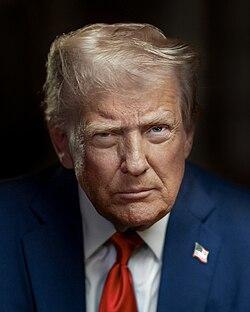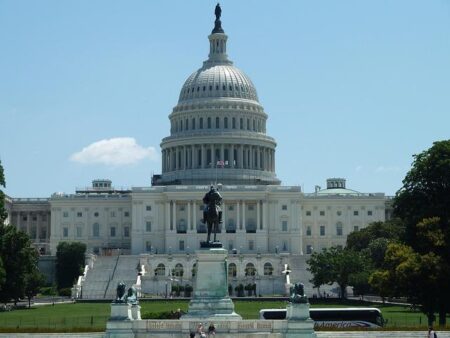Former President Donald Trump has launched a blistering attack on Congressman Jerry Nadler following the lawmakerŌĆÖs recent retirement announcement. In a series of public remarks, Trump labeled Nadler a ŌĆ£psychopathic nut job,ŌĆØ underscoring the continued animosity between the two political figures. This latest exchange highlights the enduring tensions within American politics as Nadler prepares to step away from his long-held congressional seat.
Trump Condemns Jerry Nadler with Sharp Criticism Following Retirement News
Former President Donald Trump unleashed a torrent of criticism targeting Jerry Nadler shortly after the latter announced his retirement from Congress. Describing Nadler in unflinching terms, Trump branded him a “psychopathic nut job,” intensifying the political feud that has marked their public interactions for years. The former president accused Nadler of spearheading relentless investigations and adopting a hostile stance throughout his tenure, a sentiment echoed in his latest remarks.
TrumpŌĆÖs rebuke highlights several key grievances:
- Accusations of political persecution: Trump claims NadlerŌĆÖs investigative efforts were driven by bias rather than justice.
- Criticism of congressional oversight: He suggests Nadler overstepped his bounds, targeting TrumpŌĆÖs administration unfairly.
- Implications of personal vendetta: The remarks imply that Nadler’s conduct was more personal than professional.
| Aspect | TrumpŌĆÖs View | NadlerŌĆÖs Role |
|---|---|---|
| Investigations | Unfair and politically motivated | Led numerous high-profile inquiries |
| Behavior | Aggressive, hostile | Assertive defender of congressional oversight |
| Legacy | Negative, a source of division | Influential in shaping judiciary committee actions |
Analysis of Political Fallout from the Trump-Nadler Feud
Donald Trump’s recent verbal assault on Jerry Nadler, labeling him a ŌĆ£psychopathic nut jobŌĆØ following NadlerŌĆÖs retirement announcement, has intensified an already contentious political landscape. This confrontation underscores the deepening polarization in American politics, where personal attacks between former President Trump and long-standing Democratic figures have become the new norm. NadlerŌĆÖs departure marks the end of an era characterized by his relentless scrutiny of TrumpŌĆÖs administration, and Trump’s incendiary remarks may be seen as a tactical move to undermine the legacy of his critics ahead of upcoming election cycles.
Key repercussions of the feud include:
- Republican consolidation: TrumpŌĆÖs supporters rally further around his combative style as a symbol of resistance against Democratic investigations.
- Democratic factional tension: NadlerŌĆÖs exit could create a leadership vacuum, sparking competition among progressive and moderate factions within the party.
- Media polarization: Coverage intensifies, with partisan outlets either amplifying TrumpŌĆÖs rhetoric or defending NadlerŌĆÖs legacy.
| Aspect | Impact |
|---|---|
| Election Strategy | Trump leverages attacks for voter mobilization |
| Congressional Dynamics | Shift in Democratic investigative priorities |
| Public Perception | Deepening divide among average voters |
Impact of NadlerŌĆÖs Departure on Congressional Dynamics and Future Legislation
Jerry NadlerŌĆÖs exit from the House of Representatives marks a pivotal shift in congressional leadership, most notably within the Judiciary Committee. NadlerŌĆÖs tenure was characterized by his vigorous oversight of the Trump administration, spearheading critical inquiries and legislative initiatives. His departure leaves a leadership vacuum, particularly among Democrats who relied on his expertise and tenacity. As the committee transitions to new leadership, legislative priorities and approaches may evolve, potentially leading to a recalibration in how congressional investigations and judicial reforms are pursued.
Looking ahead, the broader congressional dynamics are poised to be reshaped by NadlerŌĆÖs absence. Key implications include:
- Realignment of Committee Influence: Younger or less entrenched members may rise, altering the power dynamics within the House.
- Potential Softening of Partisan Rhetoric: NadlerŌĆÖs often confrontational style defined much of the current eraŌĆÖs political battles, and his departure could pave the way for more bipartisan collaboration.
- Legislative Agenda Shifts: New leadership may prioritize different issues, impacting the trajectory of judiciary and constitutional legislation.
| Aspect | Potential Impact |
|---|---|
| Oversight Aggressiveness | May decrease or become more strategic |
| Partisan Engagement | Possible reduction in high-profile confrontations |
| Legislative Focus | Shift toward less contentious judicial reforms |
Expert Recommendations for Navigating Intensified Partisan Tensions
In an era marked by heightened political divisions, experts advise adopting clear strategies to manage escalating tensions constructively. First, fostering open dialogue remains critical. Encouraging respectful conversationsŌĆöeven with ideological opponentsŌĆöcan help de-escalate hostile exchanges and promote mutual understanding. Political analysts emphasize the importance of grounding debates in factual information, warning against the spread of misinformation that exacerbates polarization.
Additionally, specialists recommend focusing on shared goals and community values rather than partisan allegiance. By identifying common interests, individuals can bridge divides and work collaboratively despite differences. Practitioners suggest the following practical steps:
- Engage in active listening without interruption
- Verify sources before sharing news or opinions
- Support bipartisan initiatives in local governance
- Encourage media literacy programs to foster critical thinking
- Limit exposure to extreme partisan media outlets
| Strategy | Expected Outcome |
|---|---|
| Open Dialogue | Reduced Hostility |
| Fact-Checking | Informed Public |
| Shared Goals Focus | Increased Cooperation |
| Media Literacy | Improved Critical Thinking |
| Bipartisan Support | Policy Progress |
Key Takeaways
As the political landscape continues to shift, the sharp exchanges between former President Donald Trump and longtime Democrat Jerry Nadler underscore the enduring intensity of their rivalry. NadlerŌĆÖs retirement announcement marks the end of an era in Congress, but TrumpŌĆÖs recent remarks illustrate that personal and political tensions remain high. Observers will be watching closely to see how both figures influence the evolving dynamics within their respective parties moving forward.




